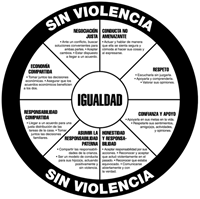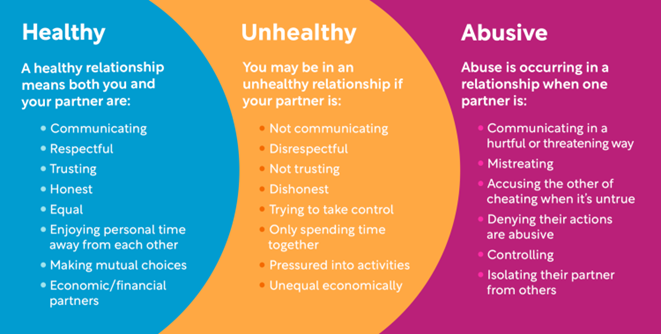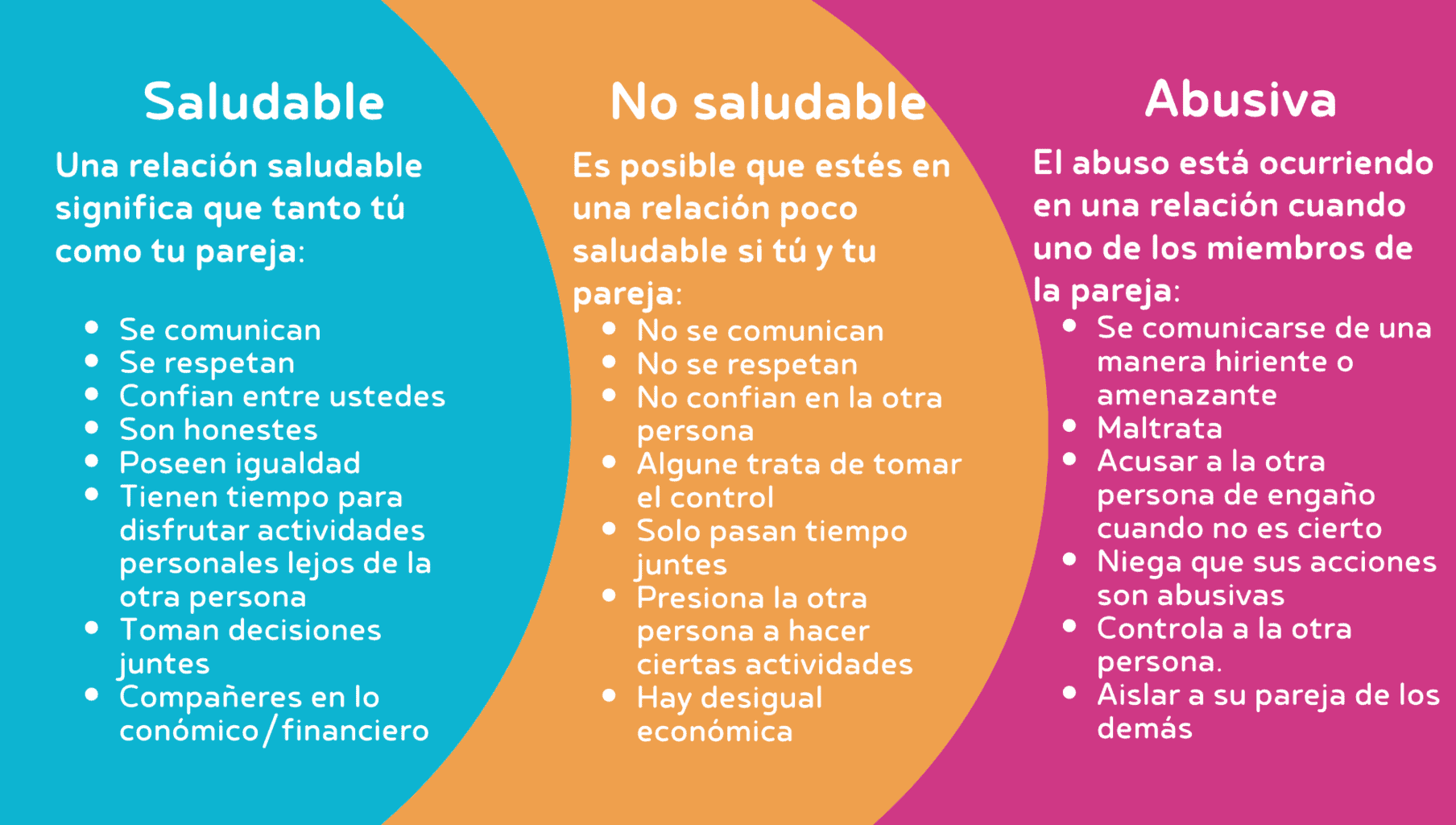- Donate to PRS
- About Us
- For Families
- Wellness Support
- Community
- Domestic Violence Services
- Education
- Events
If you are in danger, please use a safer computer, or call a local hotline, or the U.S. National Domestic Violence Hotline at 1-833-723-2968 and TTY 1-800-787-3224, or 911 if it is safe to do so.
There is always a computer trail, but you can leave this site quickly using the "Quick Escape" link above on the right.

Plumas Rural Services’ Domestic Violence Services is designed to serve any person that identifies as a victim of domestic violence within an intimate partner relationship regardless of their race, ethnicity, sexual orientation, gender, or religious beliefs. We serve both Plumas and Sierra Counties.
Domestic Violence Services offers several services for victims and their children. Please see below for a more detailed list of services provided to Plumas and Sierra residents. You can text an Advocate, 24/7 at (530)999-2126 (After hours only; 5pm to 8am)
We are located at 711 E. Main Street in Quincy, CA. Office hours are Monday thru Friday, 8:00am-5:00pm.
After hours, call the local crisis hotline number at 1-833-723-2968. If it is an emergency please call 911


Empower those affected by domestic violence compassionately through support, advocacy, education, encouragement, and outreach. We foster safety, strength, healing and independence in an effort to prevent future violence and inspire lasting change for adults, youth and the community.
(530) 283-5675
Support Domestic Violence Services by donating through our wishlist. Your purchases will go directly to DV survivors in Plumas County.
PRS is a nonprofit 501(c)(3) organization; call 530-283-5675 if you would like a receipt for your tax-deductible donation.

|
|
Connect the Dots Shifting the Lens on Domestic Violence
Shifting the Lens on Domestic Violence |
We understand the importance of physical and emotional safety of survivors and their families. Program staff utilizes a safety planning tool to assist survivors who are at risk.
For more information on how to create a safety plan for you and your family, please contact our office to speak with an advocate.
Program staff are not attorneys and cannot give legal advice. Case Managers can assist those seeking domestic violence restraining orders against an intimate partner. Many times, survivors can get lost in the complexity of the paperwork and legal process involved in obtaining restraining orders and emergency custody/visitation orders. Staff will submit paperwork, assist with service, and are available to provide court accompaniment and support.
For more information see, Legal Education & Advocacy
Program staff can provide transportation for residential and non-residential participants to necessary appointments as needed.
Our Case Managers help participants with obtaining housing, benefits, legal services, counseling, and employment. They help with transportation needs, attending court hearings, obtaining important records, and accompanying participants at medical and non-medical appointments. Case Managers will work with outreach (non-shelter) participants in the main office located at 711 E. Main Street in Quincy, setting up case plans, helping with goal setting, and promoting self-empowerment.
We can assist with emergency clothing. Oftentimes, survivors need to flee their homes in a hurry. We are also able to assist with groceries and hygiene products for those who do not have the resources. Our Case Managers can assist clients with accessing local resources through CAN (Community Assistance Network) and through the Plumas County Department of Social Services to obtain EBT and/or TANF benefits (if applicable).
PRS DVS can offer temporary emergency sheltering services for individuals and their children who need to remove themselves for safety reasons from domestic violence. As family pets can also be at risk of violence, our shelter is pet friendly, upon approval.
Plumas Rural Services Domestic Violence Services offers Zoom sessions to participants, at no charge, to help individuals. We offer individual supportive healing services for adults and children by Plumas Rural Services’ Trauma Recovery Practitioner, Julie Hatzell, and Mindful Living Coordinator, Leslie Wall.
Intimate partner violence, or IPV, is when a person is physically, emotionally, psychologically, and/or verbally aggressed upon by their intimate partner. It is when one partner exerts their power and control over the other. The term “intimate partner” refers to both current and former spouses and dating partners, and parents of a child in common. Intimate partner violence or IPV affects millions around the world – all identifying genders, sexual orientations, ages, religions, races and ethnicities, economic classes, and educational backgrounds.
There are several Red Flags pdf (Spanish pdf) to consider if you believe you may be in an abusive relationship.
If any of these red flag warnings apply to you or a loved one, Plumas Rural Services Domestic Violence Services may be able to help.
Physical:
Emotional/Psychological:
Financial/Economic:
Verbal:
Sexual Abuse:
Those who abuse, do so to gain or maintain power and control over another. Often those who abuse believe their own feelings and needs take priority over their partners and act out in inappropriate and sometimes unsafe ways. There is a consistent pattern of tactful behaviors that break down the partner's until they have a belief of inferiority to them. There may be a belief that they have the “right” to have power and control over another, and at times even feel enjoyment over it. There are many reasons “why” individuals behave in abusive ways toward their partners.
| English | Spanish |

|
The biggest question people ask is, “Why do they stay?” There are several reasons why victims of intimate partner violence stay in a relationship. There are economic, geographical, familial, and safety reasons why people stay in these relationships. The lack of resources and inability to live on one's own are also reasons to stay. The threat of taking custody of the children often plays a role. Harming the family pets is a significant deterrent to leaving. Statistically, the most dangerous time for a victim and their children is the leaving phase of the relationship. It is not uncommon that the abusive partner may escalate, potentially resorting to violence when their partner decides to leave the relationship. Leaving an abusive partner takes away their power and control.
[Why domestic violence victims don't leave | TED Talk video]
In any intimate partnership, it is normal to experience ups and downs. However, a healthy relationship fosters mutual respect, open communication, teamwork and should feel safe. Opposite of the Power and Control Wheel is the Equality Wheel that illustrates what a safe, healthy relationship should have.
| English | Spanish |

|
All relationships fall somewhere between healthy and abusive along the relationship spectrum. Where does your relationship fall?


Everyone deserves to be in a safe and healthy relationship. Do you know if your relationship is healthy?
Take the Healthy Relationship Quiz provided by www.loveisrespect.org
You can also download the pdf version here
Website by Morweb.org
Copyright 2026